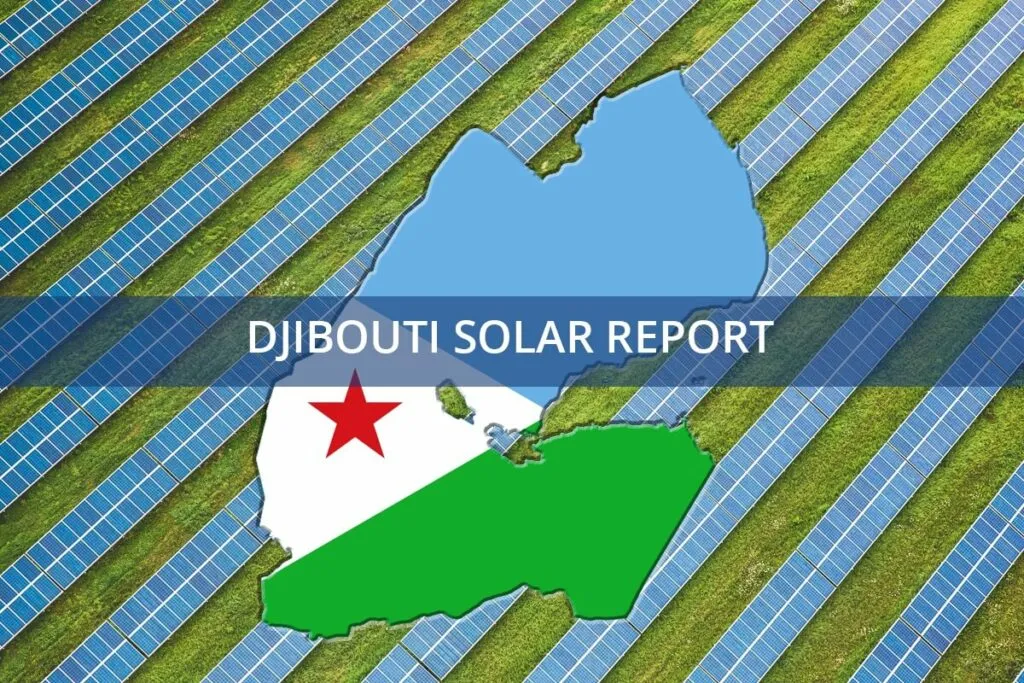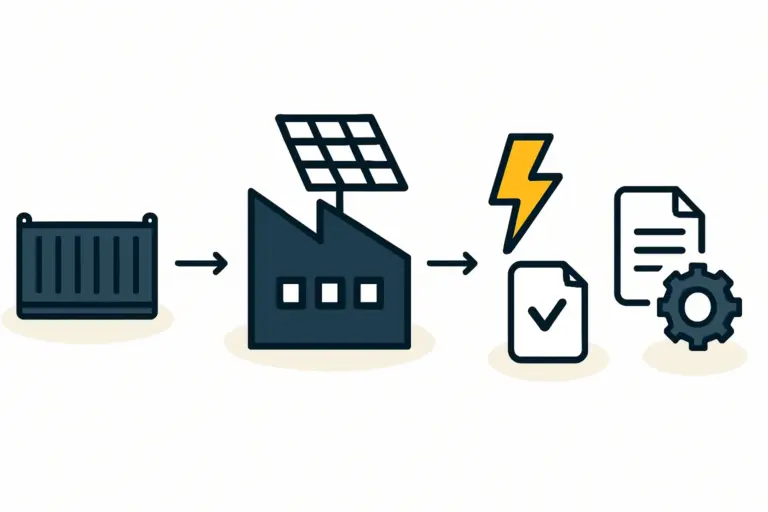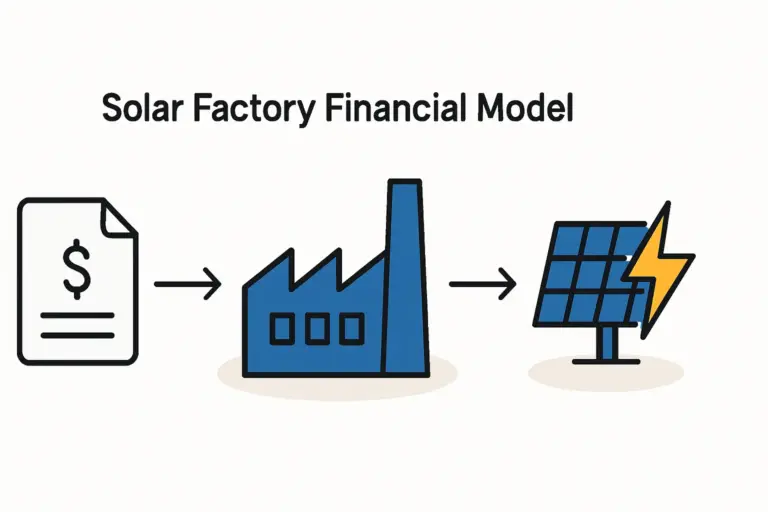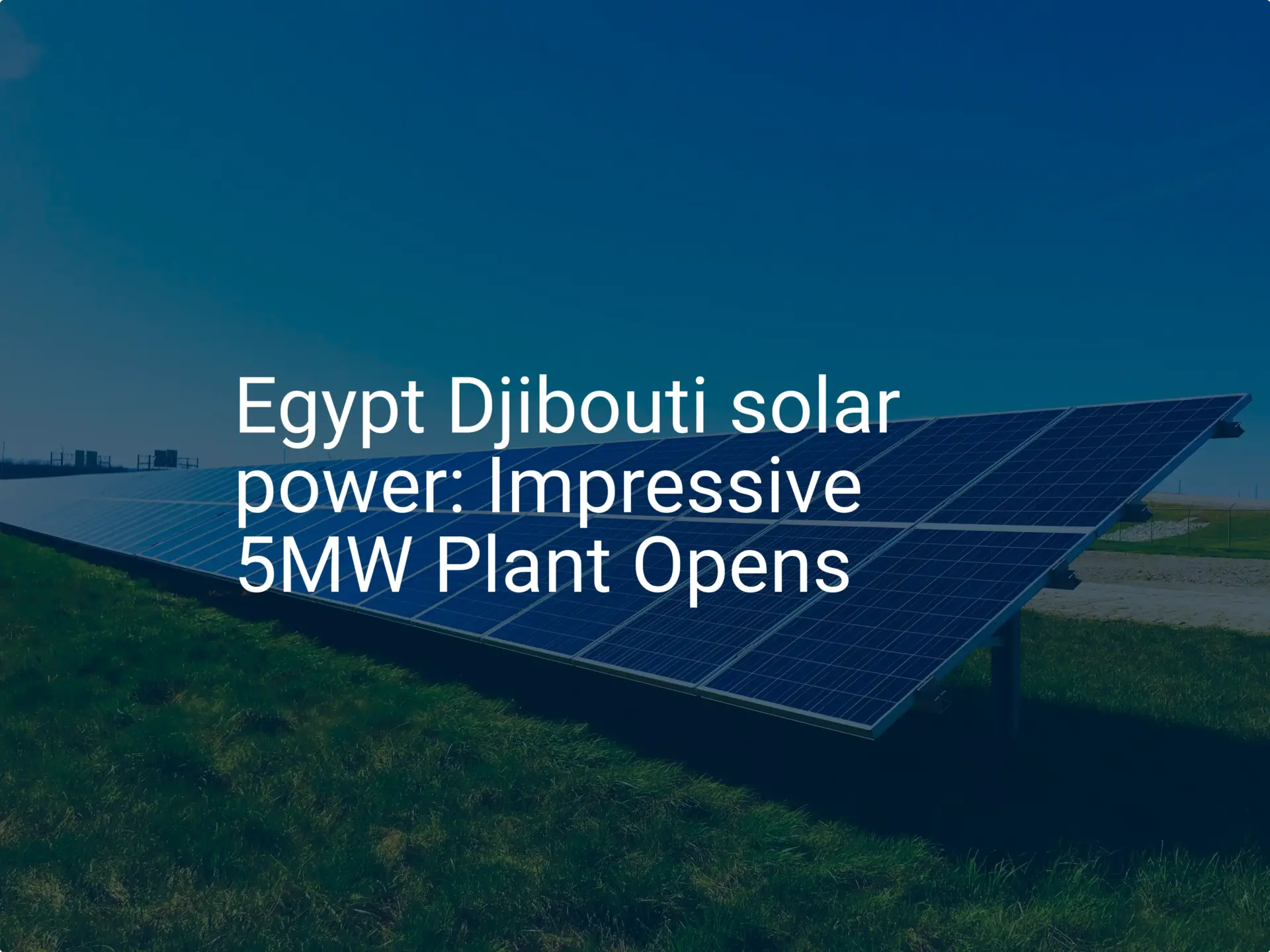While international entrepreneurs often know Djibouti for its strategic port—a critical gateway to the Horn of Africa—a closer look at its national agenda and the latest Djibouti energy news reveals a far more compelling opportunity. The country has set an ambitious goal to achieve 100% renewable energy by 2035.
This national priority transforms Djibouti from a simple market for solar products into a strategic base for solar manufacturing, creating a unique alignment between commercial investment and government objectives. Investing in local solar module production is more than just an industrial project; it is a direct contribution to Djibouti’s energy independence and economic resilience. A successful venture would benefit from Djibouti’s national energy policy, positioning an investor as a key partner in the nation’s development.
Djibouti’s Energy Landscape: A Strategic Overview
To appreciate the scale of this opportunity, it helps to understand the central challenge facing Djibouti’s economy: its heavy dependence on imported fossil fuels.
Currently, over 90% of the nation’s energy comes from these imports, leading to some of the highest electricity costs in Africa. This price volatility significantly constrains economic growth and industrial development.
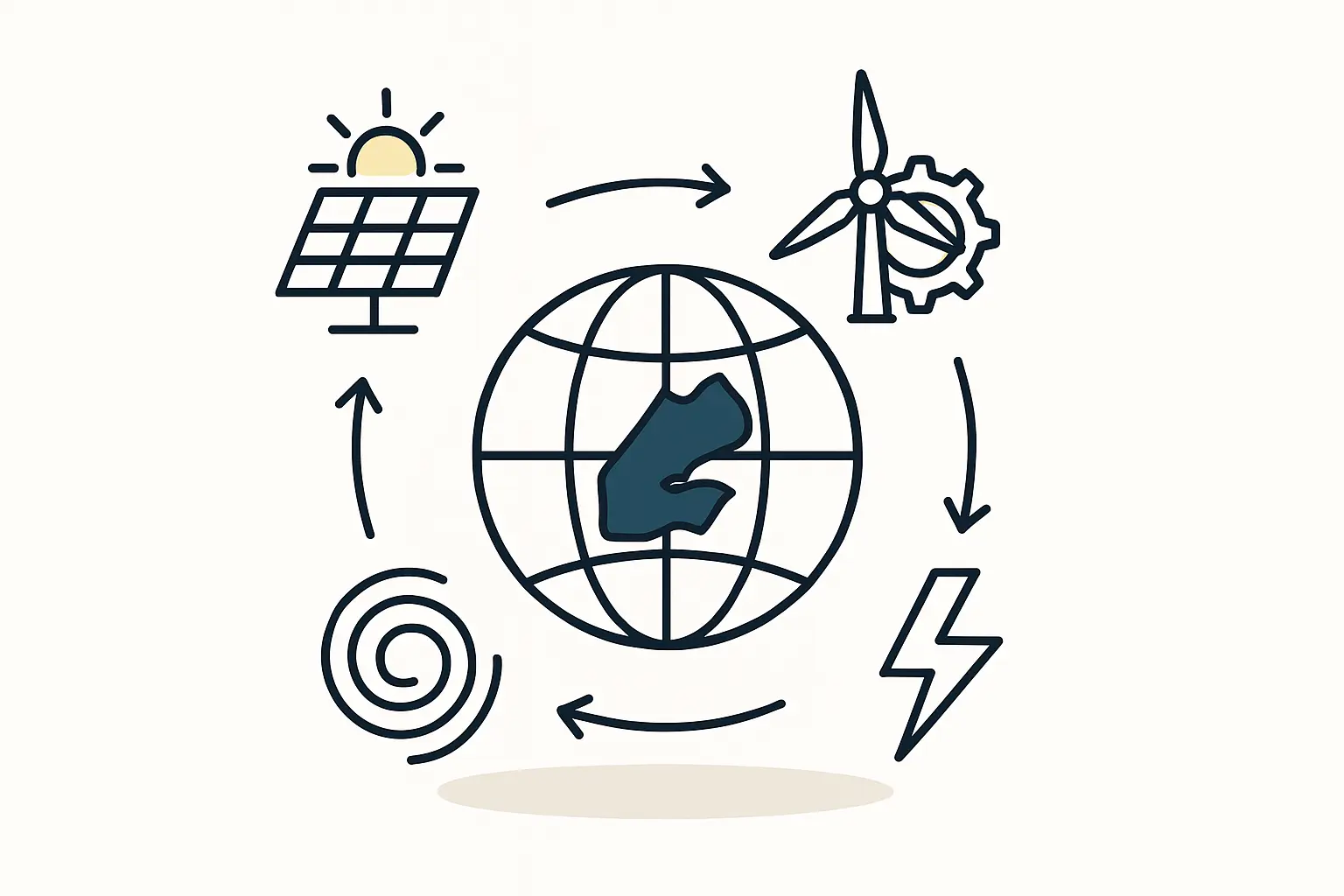
To address this, the government established ‘Vision 2035,’ a comprehensive national development plan with the core objective of transitioning entirely to renewable energy sources. This policy is driven by two key realities:
-
Economic Necessity: Reducing reliance on expensive, price-volatile fuel imports is crucial for long-term economic stability.
-
Natural Advantage: Djibouti boasts world-class solar resources, with an average Global Horizontal Irradiance (GHI) of approximately 2,130 kWh/m² per year.
This strategic shift from imported fuels to local resources creates a solid foundation for investment in the renewable energy sector.
The Regulatory Framework: How Law No. 115 Supports New Investors
A government’s vision, however ambitious, requires a strong legal framework to become a reality. Djibouti has established a clear path for the private sector with Law No. 115/AN/15/7 L on Energy Orientation, a law designed specifically to encourage private investment in renewable energy production.
For a potential solar manufacturer, the law offers several key assurances:
-
Market Authorization: It formally opens the energy sector to private and foreign investors, removing previous state monopolies.
-
Investment Security: It creates a predictable legal environment for long-term investments in energy infrastructure.
-
Policy Alignment: It ensures that a manufacturing venture operates in line with stated national priorities, which can streamline approvals and foster government collaboration.
By establishing this framework, the government has effectively invited entrepreneurs to contribute to its Vision 2035 goals.
The Business Case for Local Solar Module Manufacturing in Djibouti
While importing solar panels can meet Djibouti’s immediate renewable energy needs, establishing local manufacturing capabilities offers a more strategic and impactful solution. A domestic factory directly addresses several national priorities, creating a powerful business case.
Addressing Import Dependency
A local factory reduces the country’s reliance on foreign supply chains for critical energy infrastructure. This enhances national energy security and insulates the market from global shipping disruptions and price fluctuations. Every module produced locally is one less that needs to be purchased with foreign currency.
Economic and Social Contribution
A manufacturing facility creates direct and indirect employment, building a skilled workforce in a high-growth industry. Based on experience from J.v.G. turnkey projects in emerging markets, even a modest 20–50 MW production facility can create 30 to 50 skilled jobs. This contributes to human capital development, a core tenet of Vision 2035.

A Hub for Regional Export
Djibouti’s strategic location and port infrastructure make it an ideal base for exporting solar modules to neighboring countries in East Africa, such as Ethiopia and Somalia. A local manufacturing facility can evolve from serving a domestic market to becoming a regional industrial player, generating export revenue and strengthening the overall business model.
Navigating the Practical Steps for Compliance and Setup
Successfully aligning a project with national policy requires a structured approach. An investor needs to demonstrate how the venture supports Djibouti’s goals through a clear, professional plan.
Develop a Feasibility Study and Business Plan
A comprehensive business plan is the first and most critical step. This document should not only detail financial projections but also explicitly link the project to Vision 2035 and Law No. 115. Quantifying the project’s impact on job creation, foreign exchange savings, and local energy capacity is essential.
Outline Investment and Technology
The plan should realistically outline the investment required for the facility. Modern manufacturing technology allows for scalable operations that can start small and expand with the market. Detailing the proposed technology and production capacity demonstrates a firm grasp of operational realities.
Plan for Sourcing and Logistics
The plan should also address factory setup and logistics. Engaging with partners who provide turnkey solar module production lines can significantly de-risk the project. This approach integrates machine sourcing, installation, and staff training into a single, managed process—a valuable solution in markets where specialized technical expertise is scarce.
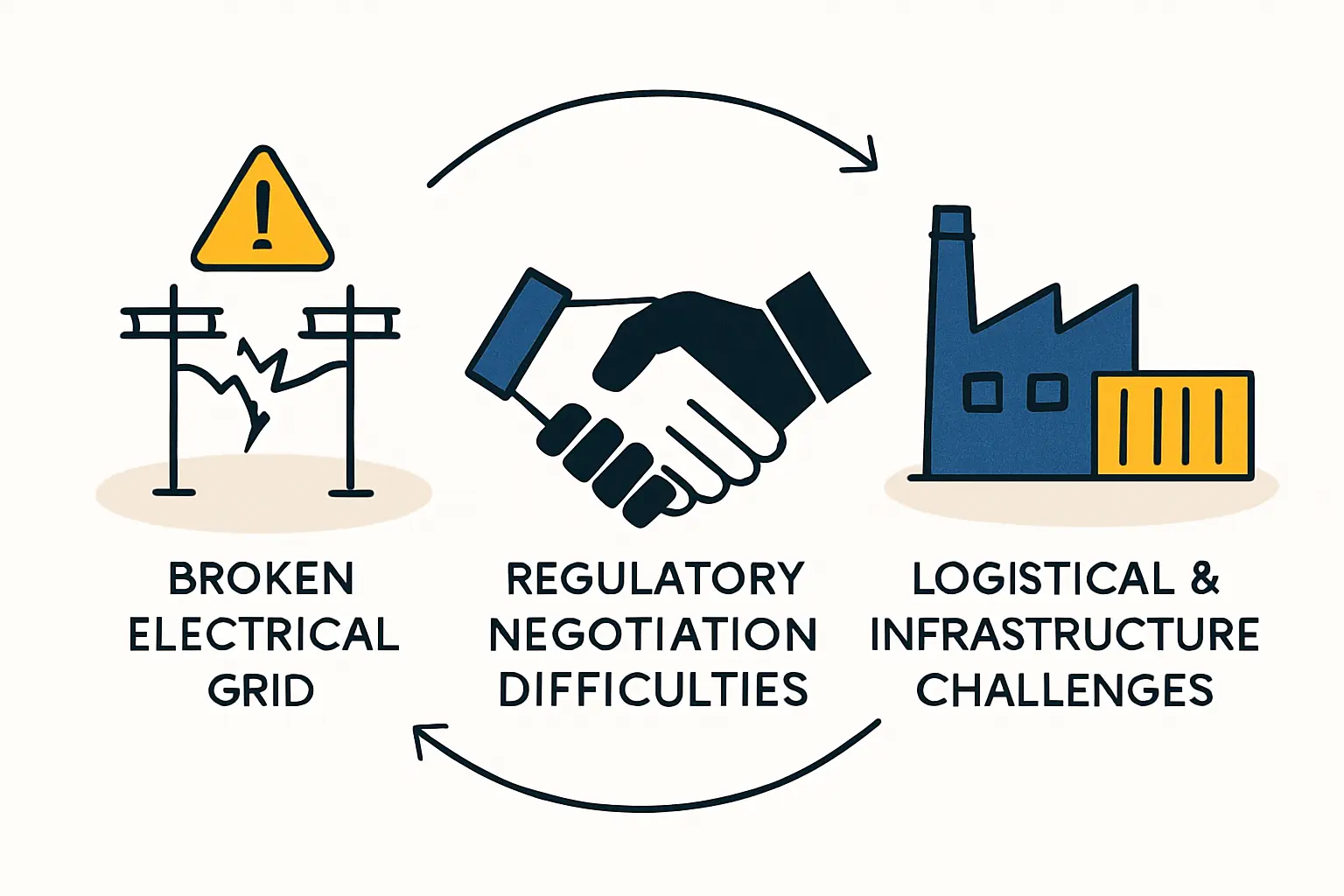
Frequently Asked Questions (FAQ)
What is the primary advantage of manufacturing in Djibouti over importing panels?
The primary advantage is strategic alignment with government policy, which can create a more favorable business environment. Financially, local production can reduce costs related to international logistics, import tariffs, and currency fluctuations, while also opening opportunities for regional export.
How much capital is needed to start a small-scale solar module factory?
The required investment varies based on capacity and technology. However, a modern, semi-automated production line with a capacity of 20–50 MW typically involves an investment in the range of a few million US dollars. A detailed financial model is essential for an accurate estimate.
Does Djibouti have the skilled labor required for solar manufacturing?
While there may be a limited pool of experienced solar technicians initially, this is a common challenge in emerging markets. Modern production lines are designed with high levels of automation and user-friendly interfaces. Furthermore, turnkey solution providers typically include comprehensive on-site training programs to rapidly upskill the local workforce.
How does a local factory contribute to grid stability?
A manufacturing plant does not directly stabilize the electrical grid. However, by providing a reliable and cost-effective local supply of high-quality solar modules, it accelerates the deployment of solar power projects—both large-scale and distributed. This growth in renewable energy generation is the ultimate key to enhancing grid resilience and achieving energy independence.
Your Next Steps as a Solar Entrepreneur in Djibouti
Entering the solar manufacturing sector in Djibouti is a significant undertaking, but it represents a rare opportunity where commercial goals and national priorities are in perfect harmony. The government has laid out a clear policy framework to invite private investment, and the country’s economic fundamentals strongly support local production.
Ready to be part of Djibouti’s renewable energy transition? A structured planning process is your key to success. Explore the resources at pvknowhow.com, including our business plan templates and e-courses. They are designed to help you turn a promising idea into a bankable project and contribute directly to Djibouti’s bright, sustainable future.

